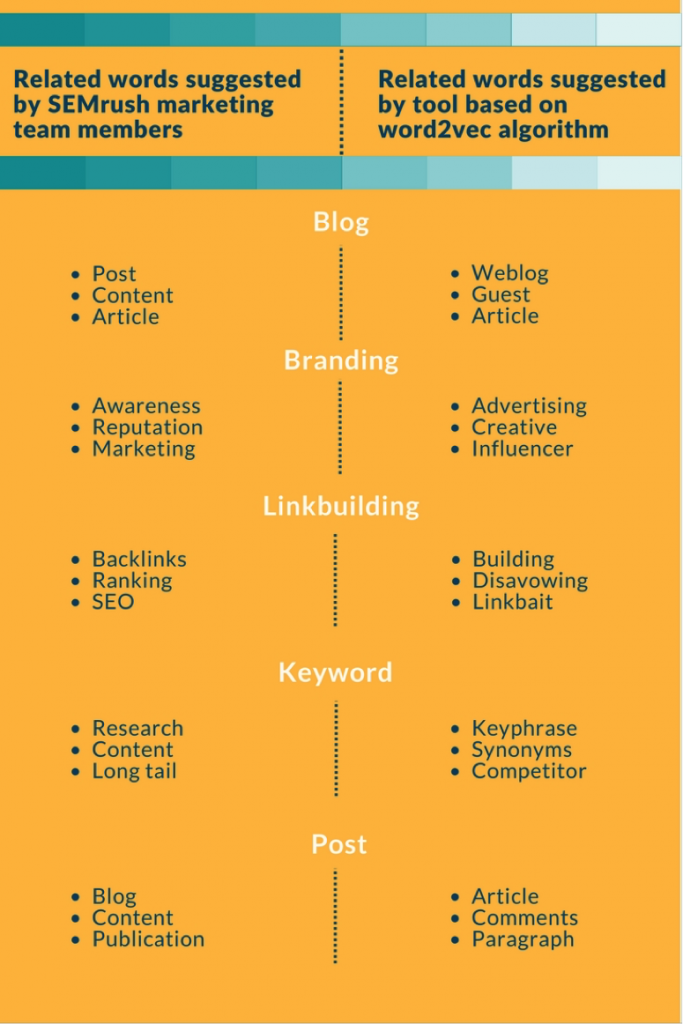It’s hard to meet anyone in the digital industry who hasn’t heard about RankBrain. And it comes as no surprise that this system along with its impact on search results raises endless questions and disputes.
We’ve made an attempt to understand the way RankBrain operates and if there’s anything we can possibly do to optimize for it.
Let’s start from the very beginning.
What is RankBrain?
RankBrain is a machine-learning system developed by Google to help improve search results and to interpret brand new queries that haven’t been previously searched for.
Some experts consider it to be part of the Hummingbird search algorithm, which was launched to help Google better understand the meaning of the entire query behind exact keywords.
The first official statement about RankBrain was made by Google senior research scientist Greg Corrado on October 26, 2015. Here’s how Greg explained the operating principle of the algorithm:
“If you’re searching for an ambiguous query, or you’re using colloquial terms or talking to Google like it was a person, traditionally, computers will break down, because they can’t understand your query or they haven’t seen that phrase before. RankBrain can generalize it: ‘That phrase seems like something I’ve seen in the past, so I’m going to assume that you meant this.’ It’s much like a person hearing you talking to them in a crowded bar – they can’t hear everything you’re saying, but they still can guess what you’re meaning and have a conversation with you.”
In this interview Greg also stated that, shortly after deployment, RankBrain has become the third most important search-ranking factor.
Since it has that much of an impact, it is important to understand exactly how this algorithm works, and what changes it will bring both to end users and SEO specialists.
How does RankBrain work?
As I mentioned above, the key purpose of RankBrain is to deliver more relevant results by interpreting the meaning of whole phrases instead of focusing on individual words.
This algorithm can effectively handle complex long-tail queries, understand how they are connected to particular topics and provide results accordingly.
To put it simply, RankBrain identifies patterns behind different search queries that might seem unrelated and finds similarities between them.
This allows the Google search engine to understand a phrase that is has never dealt with before by correlating it with phrases it is already familiar with.
As a machine-learning system, RankBrain constantly teaches itself, supposedly by paying attention to metrics like bounce rate or time spent on page. So if a user considers displayed results irrelevant to their query, the next time, the algorithm will show other results for this query. (source – Niksto.com)
What does it mean for you as a Google user?
- You will be able to find information about a thing, concept or fact without using this particular word in a search query (the example provided by Bloomberg is “What’s the title of the consumer at the highest level of a food chain”)
- You’ll get more relevant results for ambiguous queries or queries that have multiple meanings (for example, “Apple” as in the name of the brand vs. “apple” as in the fruit)
- If you type in a query that Google has never encountered before, it will be correctly interpreted and matched with familiar ones.
Google does not disclose the exact algorithms it uses, yet we know that its operating principles are close to the word2vec tool.
What is word2vec?
Word2vec is an open source toolkit that uses a text corpus to count the distance between words and produce vector representations of words and phrases.
This helps you can understand the relationship between words based on the distance between them in texts. Words with similar meanings are located close to one another terms of vector space.
Chris Moody describes an experiment of finding the closest vectors to the vector representing the word “vacation”:

To learn more about word2vec and its operating principles, check out A Beginner’s Guide to word2vec by Distilled, or read the tutorial Vector Representation of Words by TensorFlow if you’re interested in more technical details.
SEMrush’s experiment
We wanted to gain a deeper understanding of how RankBrain works, and for that purpose we conducted our own experiment.
We attempted to build connections between the words using the word2vec algorithm and SEMrush data (texts gathered with Brand Monitoring Tool). To get clearer results, we processed a limited text corpus related only to digital marketing and SEO topics.
As a result we made a tool, which can be used to input any word from digital marketing niche and get a list of words that are considered to be the most closely related to your chosen word.
These are not exactly “synonyms” (i.e., words that a have similar meaning) or “related keywords” (words returning similar results in SERPs), but something very different – words that most often occur in texts in conjunction with a given word.
With our experiment we tried to understand the way Google “thinks” and which words it considers related to your targeted keywords.
The results were quite interesting, as they were somewhat intuitively unpredictable. We’ve conducted a small survey of our own digital marketing specialists, asking them to give three associations to a few words, and then compared the results with those returned by the tool.
And sometimes words that we closely associate with a certain concept are not the ones that actually appear in proximity to it in text:

How to optimize for RankBrain?
According to Google’s official representatives, there is no way to optimize for RankBrain.
Moreover, RankBrain is not going to have a noticeable impact on search results, as its main purpose is to deal with queries that lack data – plus, as Google Webmasters search analyst Gary Illyes pointed out on Twitter, “RankBrain has no affect on crawling or indexing.”
But the fact is that you can’t simply ignore the existence of such a powerful algorithm in your SEO activities.
So which conclusions can we draw from the principles of operation that uses RankBrain?
1) Expand your keyword list beyond synonyms and variations
Stop creating pages or content tailored to only one keyword or keyword phrase. For maximum effect, try composing your semantic kernel of both:
- Your targeted keywords, as well as their variations and related keywords (chosen with the help of your preferred keyword research tools).
- Additional words that most commonly appear in the same context as your targeted keywords.
2) Focus on creating comprehensive content that provides value to your audience
Write more inclusive posts, strive to cover all aspects of the chosen topic, answer as many questions as you can.
The ultimate goal of Google and RankBrain in particular is to provide users with the most useful and relevant results. If you share this same goal, you’re more likely to succeed.
3) Optimize for people, not for search engines
Though this statement may sound banal, it is especially true in the context of machine learning.
As Neil Patel claims in his article, “it’s called machine learning because the machines learn, not merely from abstract environmental forces, but from the behavior of humans.”
So don’t try to please search algorithms and systems, focus your attention on providing a better user experience, analyzing your visitors’ behavior and making changes accordingly.
If people appreciate your content and consider it relevant, the algorithms will start doing the same naturally.
In conclusion
To sum this all up, our attempt to understand one of the most mysterious Google algorithms demonstrated that it is nearly impossible to intuitively predict the way Google thinks.
In addition, being a machine learning system, RankBrain is constantly improving itself, while at the same time, Google algorithms are being updated and further developed.
All you can do to keep up with this, is make sure that you are always proficient and committed in everything you are doing or writing. Thus, you will succeed whatever new algorithms appear in the search industry or updates are rolled out.
Yulia Khansvyarova is Head of Digital Marketing at SEMrush and a contributor to SEW.

